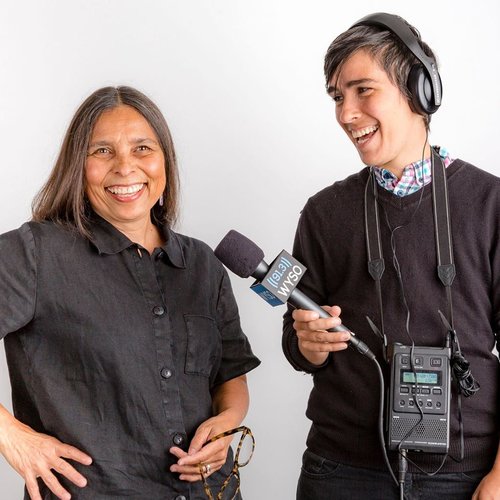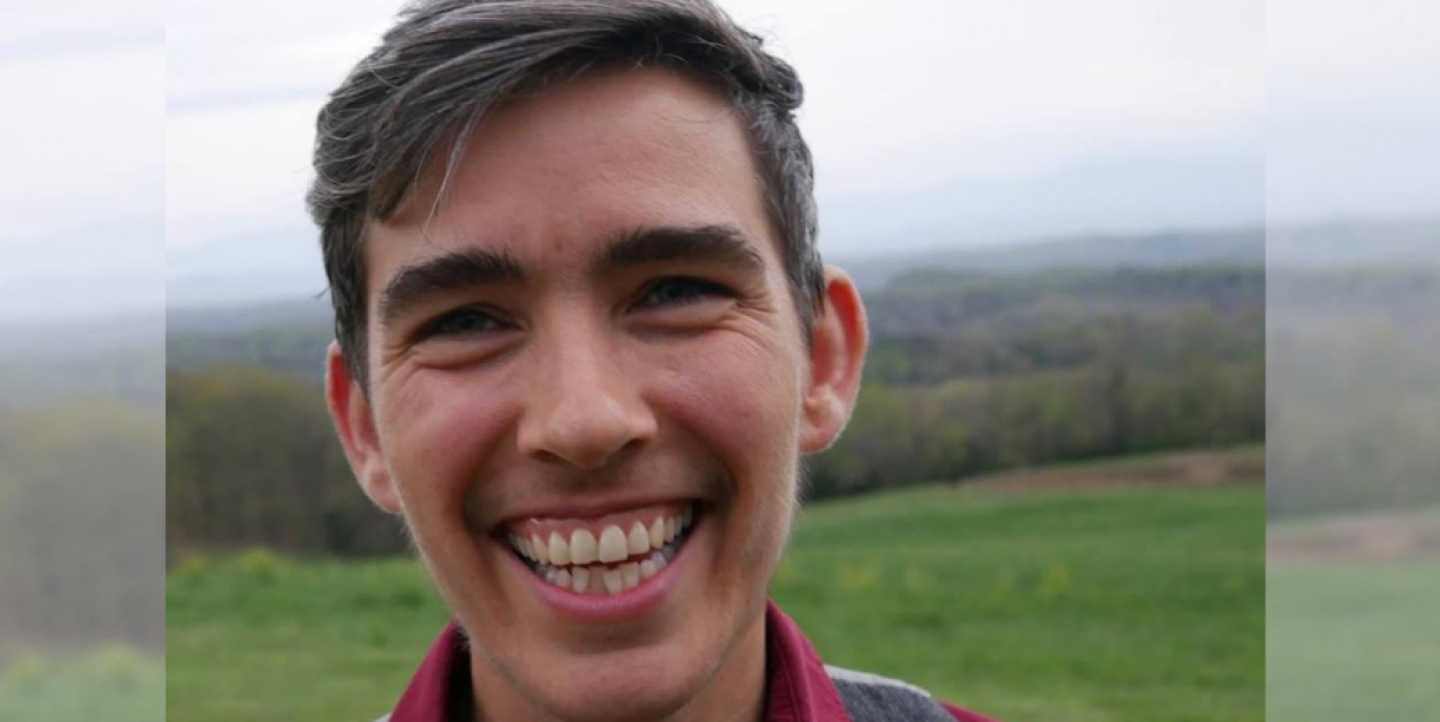In 2017, Lewis Raven Wallace was fired from his job in public radio for a piece he wrote on his personal blog, “Objectivity is dead, and I’m ok with it.” His employers said the piece violated their code of ethics, most notably their commitment to objectivity and neutrality. Although Wallace disagreed with his employers on the premise, he had almost no room to debate them on it.
The piece put an end to one job, but not his career. In the years following, Wallace placed questions about neutrality, ethics, morality and truth in journalism front and center in his career. He launched a podcast and wrote a book, both titled “The View from Somewhere,” which explore objectivity and examine how journalism can transform to avoid excluding marginalized communities.
Wallace is also the co-founder of Press On, an organization that uses movement journalism to uphold Southern storytelling and counter the exploitation of mainstream media.
“[Movement journalism] assumes that the people best situated to tell stories might be the people who are in that community already, or the people working on the solutions already,” said Wallace. “Another layer of movement journalism is the ongoing commitment of having an analysis of power and oppression. In movement journalism, I don’t think we attach ourselves to any one policy, platform or set of ideas, but there’s a commitment to collective liberation in the long-term.”
In a Q&A with Wallace, we explore journalistic objectivity, the future of journalism and more.
IJNet: What does objectivity mean to you?
Wallace: When I talk about the definition of objectivity, I think about it in two ways. One is the practices in journalism that are focused on getting the story right, and the other is the performance in journalism of this idea of being neutral or impartial. Oftentimes those two aspects of objectivity –– the practices of being factual and the performance of being impartial or neutral –– are conflated into one thing that has confused the discussion quite a bit.
[Read more: Exploring boundaries between journalism ethics, charity and advocacy]
You were once fired from your job after writing a piece that the organization did not see to fit in their mold of “impartial journalism.” As journalists across the world are covering protests, police brutality, COVID-19 and so much more, how can journalists and newsrooms tell these stories while balancing their own values and ideologies?
My colleague and collaborator Ramona Martinez says, “objectivity is the ideology of the status quo.” Oftentimes, the “objective” or “impartial” newsrooms aren’t actually assessing what is their own ideology because it aligns with the status quo that surrounds them. So when someone in the newsroom or outside the newsroom challenges that, it’s perceived as not objective because it’s not the status quo. Once you’ve broken through that and realize that everybody is operating from an ideological position of some kind — whether they realize it or not — then you can have a conversation about “What are our values and how do those values guide our coverage?”
I think the perception that it's possible to be objective or impartial is a big block that makes it hard to have those more rich and meaningful conversations like, “What values do we bring to [movements] like Black Lives Matter? Is it a solidarity approach? Is it an outside looking in approach? If so, why? What does that say about the white-ness of your organization?”

What are your thoughts on journalists reporting on a topic closely related to their life?
Privilege and access are their own form of bias that in many ways are the most dangerous because it’s the most invisible. As a white person, it’s very rare that there’s any need for me to think about my racial identity, or think about how my whiteness affects my perspective. Every person of color is born into a world in which you’re made aware of your race. White people are born into a world where they’re allowed to not be. That form of bias is in many ways the most insidious in journalism.
In a way, I think the conversation should be reversed and should be focused on the people with power and access, and the bias they’re bringing. I work closely with a woman named Roxana Bendezú who runs an organization called Migrant Roots Media that publishes stories about immigration and migration [written] by immigrants and the children of immigrants. It focuses on root causes. There’s two pieces there. One is, “Let’s look at the root causes of migration and not just the stories of people migrating,” and also, “Let’s create a platform for people who this is their experience, because they can be the ones with the most expertise in a lot of ways.”
Journalism schools are still often teaching the opposite of that, which is crazy to me because there’s tons of examples and traditions that say that folks with direct connection to a story not only can, but should, be the ones to tell it. I hope journalism schools and journalism organizations begin to recognize the implications of this kind of backwards framing of expertise, reliability and credibility, because it’s really oppressive.
That’s not to say that every transgender person should only be reporting on trans issues or that no cis-gender person can, but that trans people have lived expertise that is undervalued not just in journalism, but in every field.
[Read more: How to promote diversity in coverage and in the newsroom]
Do you think there could be a new journalism model in which truth is not defined by “objectivity?”
At Press On, we’ve been talking about movement journalism and recognizing that in many ways movement journalism isn’t a new model. It’s a model that comes out of folks like Ida B. Wells doing journalism as a part of the movement against lynching.
I think movement journalism is an attempt to really bring that into the light and say grassroots efforts at communicating the information that people need in order to make material change in their lives is journalism. It’s been sidelined as, “Oh it’s just activism,” but we all can see today that Ida B. Wells was a journalist and Marvel Cooke was a journalist. They may have been framed as activists because of racism and sexism and this sort of bias against activists, but that’s all just gatekeeping.
You started conversations like this in 2016, but many newsrooms are just having these conversations now. Do you think this momentum can be sustained?
I think this momentum has to be sustained. There’s no going back from some of the ways that these conversations have kind of busted open over the last few months. To me, that’s just a necessity. The way we’ve been living in this country — the way that journalism has been working, the way that democracy has been working — is not sustainable. People are taking to the streets because they’re frustrated, and with very good reason. That’s only going to continue, and increase, until racism is addressed at a systemic level and every part of the society.
I think journalists and journalistic organizations can keep up that momentum or they can continue to die. That’s what I feel like the choices are.
Main image is by Katherine Webb-Hehn of Scalawag.
Wessam Hazaymeh is a former intern at the International Center for Journalists.

